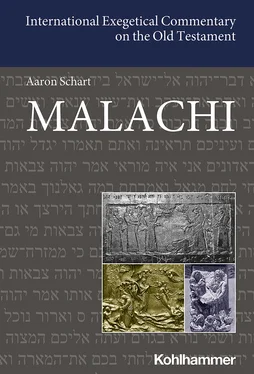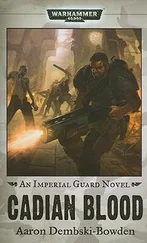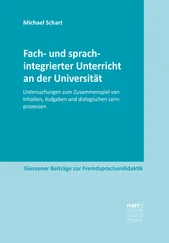International Exegetical Commentary on
the Old Testament (IECOT)
Edited by:
Walter Dietrich, David M. Carr, Adele Berlin, Erhard Blum, Irmtraud Fischer, Shimon Gesundheit, Walter Groß, Gary Knoppers (†), Bernard M. Levinson, Ed Noort, Helmut Utzschneider and Beate Ego (Apocrypha/Deuterocanonical books)
Cover:
Top: Panel from a four-part relief on the “Black Obelisk of Shalmaneser III” (859–824 BCE) depicting the Israelite king Jehu (845–817 BCE; 2 Kings 9f) paying obeisance to the Assyrian “King of Kings.” The vassal has thrown himself to the ground in front of his overlord. Royal servants are standing behind the Assyrian king whereas Assyrian officers are standing behind Jehu. The remaining picture panels portray thirteen Israelite tribute bearers carrying heavy and precious gifts. Photo © Z.Radovan/BibleLandPictures.com Bottom left: One of ten reliefs on the bronze doors that constitute the eastern portal (the so-called “Gates of Paradise”) of the Baptistery of St. John of Florence, created 1424–1452 by Lorenzo Ghiberti (c. 1378–1455). Detail from the picture “Adam and Eve”; in the center is the creation of Eve: “And the rib that the LORD God had taken from the man he made into a woman and brought her to the man.” (Gen 2:22) Photograph by George Reader Bottom right: Detail of the Menorah in front of the Knesset in Jerusalem, created by Benno Elkan (1877–1960): Ezra reads the Law of Moses to the assembled nation (Neh 8). The bronze Menorah was created in London in 1956 and in the same year was given by the British as a gift to the State of Israel. A total of 29 reliefs portray scenes from the Hebrew bible and the history of the Jewish people.
Aaron Schart
Malachi
Verlag W. Kohlhammer
Translation: Linda M. Maloney
Editorial collaboration: Jonathan M. Robker
1. Edition 2022
All rights reserved
© W. Kohlhammer GmbH, Stuttgart
Production: W. Kohlhammer GmbH, Stuttgart
Print:
ISBN 978-3-17-028852-2
E-Book-Formate:
pdf: ISBN 978-3-17-028853-9
epub: ISBN 978-3-17-028854-6
All rights reserved. This book or parts thereof may not be reproduced in any form, stored in any retrieval system, or transmitted in any form by any means—electronic, mechanical, photocopy, recording, microfilm/microfiche or otherwise—without prior written permission of W. Kohlhammer GmbH, Stuttgart, Germany.
Any links in this book do not constitute an endorsement or an approval of any of the services or opinions of the corporation or organization or individual. W. Kohlhammer GmbH bears no responsibility for the accuracy, legality or content of the external site or for that of subsequent links.
This commentary proceeds by first offering a synchronic view of the canonical final text of Malachi, especially the argumentation in the disputation speeches. Then the history of the text's origins is reconstructed, revealing an originally independent collection of disputation speeches. The additions provide some precision, introduce motifs from other writings, or accommodate the text to changing historical frameworks. In a third move the reader's view is directed beyond the Malachi document itself: as the last writing in the Book of the Twelve Prophets, Malachi refers back to other prophetic writings. The New Testament in turn adopts sayings from Malachi and develops them further. Finally, Schart investigates the theological relevance of the book.
Professor Aaron Schart teaches Old and New Testament at the University of Duisburg-Essen.
Editors’ Foreword
Author’s Foreword
Introduction
Malachi in the Canon
The Text of the Malachi Document
The Greek Translation
Poetic Analysis of the Malachi Document
Disputation Speech (Contentious Refutation)
Structure of the Writing
The Document’s Origins
The Malachi Document as the Final Section of the Book of the Twelve Prophets
The Historical Situation of the Malachi Document
Ideas about God in the Malachi Document
Malachi 1:1 Superscription
Translation
Synchronic Analysis
Diachronic Analysis
Summary Interpretation (Synthesis)
Malachi 1:2–5 Love for Jacob, Hatred for Esau
Translation
Synchronic Analysis
Diachronic Analysis
Summary Interpretation (Synthesis)
Malachi 1:6–2:9 Worship without Reverence for God
Translation
Synchronic Interpretation
Diachronic Interpretation
Summary Interpretation (Synthesis)
Malachi 2:10–16 Faithless Actions
Translation
Synchronic Analysis
Diachronic Analysis
Summary Interpretation (Synthesis)
Malachi 2:17–3:5 Violation of the Law
Translation
Synchronic Analysis
Diachronic Analysis
Summary Interpretation (Synthesis)
Malachi 3:6–12 Keeping Nothing Back from God
Translation
Synchronic Interpretation
Diachronic Analysis
Summary Interpretation (Synthesis)
Malachi 3:13–21 [3:13–4:3 ET]Justice for Those Who Revere
Translation
Synchronic Analysis
Diachronic Analysis
Summary Interpretation (Synthesis)
Malachi 3:22–24 [4:4–6] The Sending of Elijah
Translation
Synchronic Analysis
Diachronic Analysis
Summary Interpretation (Synthesis)
Bibliography
Indexes
Index of Hebrew Words
Index of Key Words
Index of Biblical Citations
Genesis
Exodus
Deuteronomy
Ezra
Nehemiah
Psalms
Proverbs
Isaiah
Jeremiah
Ezekiel
Hosea
Joel
Amos
Micah
Nahum
Zephaniah
Haggai
Zechariah
Malachi
Matthew
Mark
John
Romans
1 Corinthians
Plan of volumes
The International Exegetical Commentary on the Old Testament (IECOT) offers a multi-perspectival interpretation of the books of the Old Testament to a broad, international audience of scholars, laypeople and pastors. Biblical commentaries too often reflect the fragmented character of contemporary biblical scholarship, where different geographical or methodological sub-groups of scholars pursue specific methodologies and/or theories with little engagement of alternative approaches. This series, published in English and German editions, brings together editors and authors from North America, Europe, and Israel with multiple exegetical perspectives.
From the outset the goal has been to publish a series that was “international, ecumenical and contemporary.” The international character is reflected in the composition of an editorial board with members from six countries and commentators representing a yet broader diversity of scholarly contexts.
The ecumenical dimension is reflected in at least two ways. First, both the editorial board and the list of authors includes scholars with a variety of religious perspectives, both Christian and Jewish. Second, the commentary series not only includes volumes on books in the Jewish Tanach/Protestant Old Testament, but also other books recognized as canonical parts of the Old Testament by diverse Christian confessions (thus including the Deuterocanonical Old Testament books).
When it comes to “contemporary,” one central distinguishing feature of this series is its attempt to bring together two broad families of perspectives in analysis of biblical books, perspectives often described as “synchronic” and “diachronic” and all too often understood as incompatible with each other. Historically, diachronic studies arose in Europe, while some of the better known early synchronic studies originated in North America and Israel. Nevertheless, historical studies have continued to be pursued around the world, and focused synchronic work has been done in an ever greater variety of settings. Building on these developments, we aim in this series to bring synchronic and diachronic methods into closer alignment, allowing these approaches to work in a complementary and mutually-informative rather than antagonistic manner.
Читать дальше












